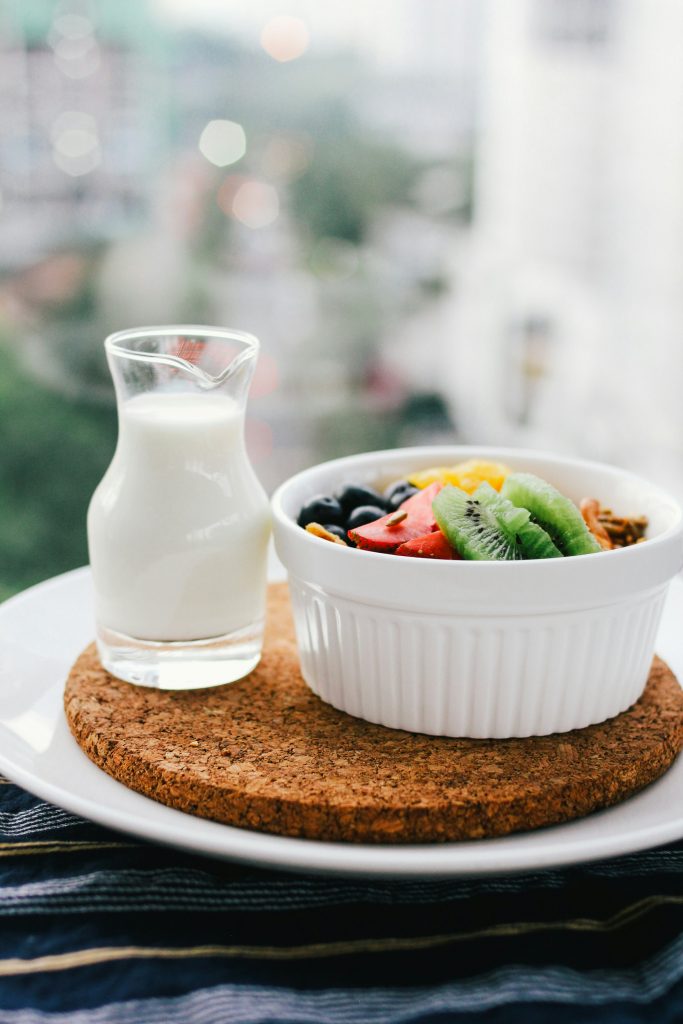
Gut health has become a bit of a buzz word lately and there is so much information out there it can easily become a bit overwhelming. I’m here to break it down into easy, simple, and practicle steps for you to incorporate into your lifestyle.
Please note if you are experiencing ongoing or worsening gut symptoms after incorporating these steps you should see your GP or a specialist gut health dietitian. Those with gut conditions should seek dietary advice from a trained healthcare professional.
1. Meeting your fibre goals
Adults in the UK are recommended for 30g of Fibre per day. Most of the UK population does not meet this and increasing your fibre intake can greatly improve gut health by increasing the ‘good’ bacteria in your gut.
Increasing fibre intake should be done gradually to allow your gut to adjust. Adding too much fibre too quickly can cause gastro symptoms.
It is also important to ensure you are drinking plenty of fluid when increasing your fibre intake as fibre draws water into the gut meaning you can become dehydrated if you do not drink enough fluid.
Ways to increase your fibre intake:
- Switching to wholegrain carbohydrates including cereal, bread, and pasta
- Ensuring you have at least 1 portion of fruit/veg with each meal
- Leaving the skin on vegetables
- Aim for fibre rich snacks such as fruit, nuts, or veggie sticks with hummus
- Switching out part of the meat in your meal for plant based proteins such as beans, lentils of tofu
- Sprinkle some chopped nuts/seeds onto meals
2. Consider adding some fermented foods into your diet
Fermented foods help feed the ‘good’ bacteria in our gut – promoting a healthy gut micorbiome. Adding foods such as saurkraut, kimchi, kombucha, sourdough, and certain yoghurts which are fermented can help aid your gut function. You can even try makingsome of these foods yourself at home for a cheaper alternative!
Again these should be gradually increased in the diet to prevent any gut side effects.
3. Have a good variety of foods in your diet
Aka eating the rainbow. A good variety of fruit, veg, and wholegrains will help to create a good variety of ‘good’ gut bacteria and promote a healthy gut microbiome.
Trying to mix up your food shop each week and change which vegetables you are eating or getting a veg box which delivers a variety and change in fruit and veg can help with this.

4. Ensure you are taking time to de-stress
Our guts do not like stress. This decreases the amount of ‘good’ bacteria in our guts and cause changes in bowel habits. Although easier said than done, taking time to try and reduce your stress levels can help maintain a healthy gut and regular bowel habits.
Tips to decrease stress:
- Try to schedule time in each week for yourself to do something you love and give yourself some self-care
- If possible, aim to incorporate daily habits to decrease stress such as a short daily walk or switching your phone off for an hour before bed
- Ensure you are getting enough sleep and adequate nutrition
5. Getting enough sleep
There is some evidence to suggest that maintaining a good sleep schedule can help benefit our gut health and maintain a healthy gut microbiome. Most adults need around 8 hours sleep and maintaining good sleep hygeine can help to achieve this
Want to incorporate some of these habits into your lifestyle? Let me help you by booking a consultation here
Like this post? Check out other posts like this here
Check out my instagram for similar content and updates here

